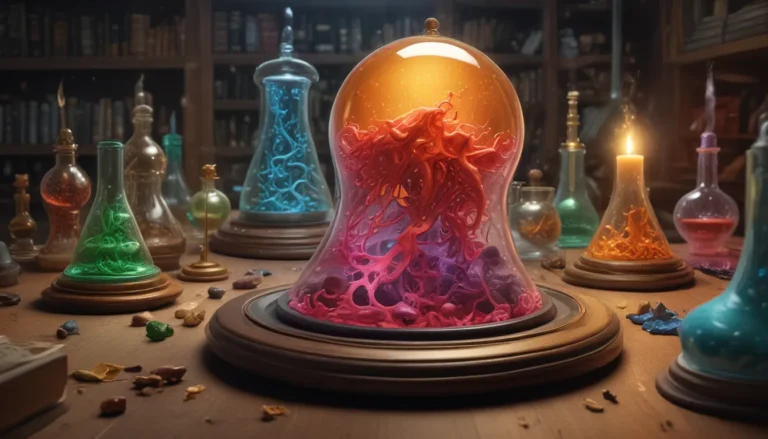A Note About Images: The images used in our articles are for illustration purposes only and may not exactly match the content. They are meant to engage readers, but the text should be relied upon for accurate information.
Dielectric materials are a fundamental part of many devices and technologies we encounter daily. From capacitors to telecommunications systems, dielectrics are essential in ensuring the functionality and efficiency of these technologies. But what exactly is a dielectric, and why are they so significant in the world of physics? In this article, we will take a deep dive into the intriguing world of dielectric materials and explore twelve captivating facts that highlight their importance and influence in various fields of study. So, sit back, relax, and prepare to explore the mind-bending properties and applications of dielectrics.
Understanding Dielectric Materials
Dielectric materials are non-conductive substances that can store electrical energy, providing insulation in electronics, enabling energy storage in capacitors, and even enhancing optical devices. These materials can be polarized by an electric field, allowing them to temporarily store electrical energy between their molecules. There are various types of dielectric materials, including gases, liquids, and solids, each with unique properties and applications in the field of electronics.
The Role of Dielectric Materials
Dielectric materials play a crucial role in electronics by providing insulation and protection in electronic circuits, preventing unwanted electrical current flow, and maintaining the integrity and functioning of electronic devices. Capacitors, which are electronic components that store and release electrical energy, utilize dielectric materials to affect their capacitance value, voltage rating, and overall performance characteristics.
Key Properties of Dielectric Materials
The dielectric constant, also known as relative permittivity, measures how well a dielectric material can store electrical energy compared to a vacuum. Dielectric loss, or dissipation factor, quantifies the energy lost as heat in a dielectric material when subjected to an alternating electric field. Dielectric strength is a critical factor that determines the maximum electric field a dielectric material can withstand without breaking down and becoming conductive.
Applications of Dielectric Materials
Dielectric materials find applications in memory storage devices, optical coatings, lenses, and even energy storage systems like batteries and capacitors. Their unique properties allow for efficient light transmission, reflection, and control, making them indispensable in various technological advancements across industries.
Advancements in Dielectric Technology
Dielectric spectroscopy is a scientific technique that measures the electrical response of a dielectric material across a range of frequencies, providing valuable insights into the material’s molecular structure and behavior. Dielectric testing is conducted to assess the quality and reliability of dielectric materials and electronic components, ensuring they meet performance characteristics and safety standards.
Conclusion: Embracing the World of Dielectrics
Dielectric materials are fascinating components that contribute significantly to scientific and technological advancements. From their ability to store electric charge to their impact on electromagnetic waves, dielectrics are essential in numerous devices and technologies. By exploring the twelve intriguing facts about dielectrics shared in this article, we gain a deeper understanding of their intricacies and their pivotal role in shaping our modern world.
FAQs: Exploring Dielectric Materials
-
What is a dielectric material?
A dielectric material is a substance that does not readily conduct electricity but can store and withstand electrical energy. -
How do dielectrics influence capacitors?
Dielectrics enhance the capacitance of capacitors by reducing the electric field and allowing them to store more charge. -
Can dielectric materials store electrical energy?
Yes, dielectric materials can store electrical energy when exposed to an electric field, making them crucial in capacitors and energy storage devices. -
Do dielectrics impact the behavior of electromagnetic waves?
Dielectrics modify the electric and magnetic fields of electromagnetic waves, affecting their propagation, reflection, refraction, and absorption. -
Are dielectric materials used in optics?
Yes, dielectric materials are widely utilized in optics for producing optical filters, mirrors, waveguides, and lenses.
Embark on a journey of discovery and expand your knowledge of dielectrics with these engaging insights into the world of these essential materials. Get ready to uncover the mysteries and potential of dielectric materials as you delve into their fascinating properties and applications across various industries.






